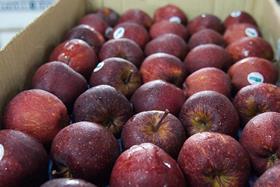
Horticultural ties between New Zealand and India have been strengthened by the announcement of a new three-year development project, funded by the World Bank.
The project will see New Zealand scientists and industry groups work with the horticulture sector in the Indian state of Himachal Pradesh to improve production of the region’s key fruit crops, including apples, stonefruit and tropical fruits such as mango.
The New Zealand team working on the Himachal Pradesh Horticultural Development project includes Plant & Food Research, Agfirst Engineering and Fruition Horticulture, with additional support from New Zealand Apples & Pears and New Zealand government agencies.
Apples are the main crop grown in Himachal Pradesh, accounting for 85 per cent of fruit production in the area. The state grows around 30 per cent of India’s total apple crop.
While accounting for just 0.5 per cent of global apple production, the World Apple Review – produced by the Belrose Group – has named New Zealand as the world’s most competitive apple industry for the past three years.
New Zealand Apples & Pears chief executive Alan Pollard said his industry was happy to pass on its knowledge, with an eye to creating more jobs and better livelihoods for the people of Himachal Pradesh.
“New Zealand’s apple and pear industry has the highest productivity in the world, averaging 65 tonnes per hectare per annum which is more than 50 per cent higher than our nearest competitor,” Pollard said.
“This project will provide growers in the Himachal Pradesh province of India with access to New Zealand expertise to help improve the productivity of their orchards in terms of both yield and quality, and subsequently generate better returns for their growers.
Located in the north-western Himalayan region of India, about 90 per cent of Himachal Pradesh’s population lives in rural areas and is dependent on agriculture for their livelihoods.
The new project will assist in developing orchard management techniques, irrigation and water harvesting that will improve yields and the quality of fruit grown in these communities. It will also lower pesticide use through improved disease management programmes.
Plant & Food Research chief executive Peter Landon-Lane said the project would provide a valuable learning experience for his organisation, and the New Zealand industry more broadly.
“Our scientists have been working with the apple industry for more than 50 years and our research has contributed to the excellent reputation of New Zealand produce globally. To be able to share this knowledge to support communities in developing regions is very rewarding,” Landon-Lane explained.
“It also allows our scientists to extend their understanding of how crops grow in different geographic regions and environments, and supports the relationship between New Zealand and India, and their respective apple industries.'






No comments yet